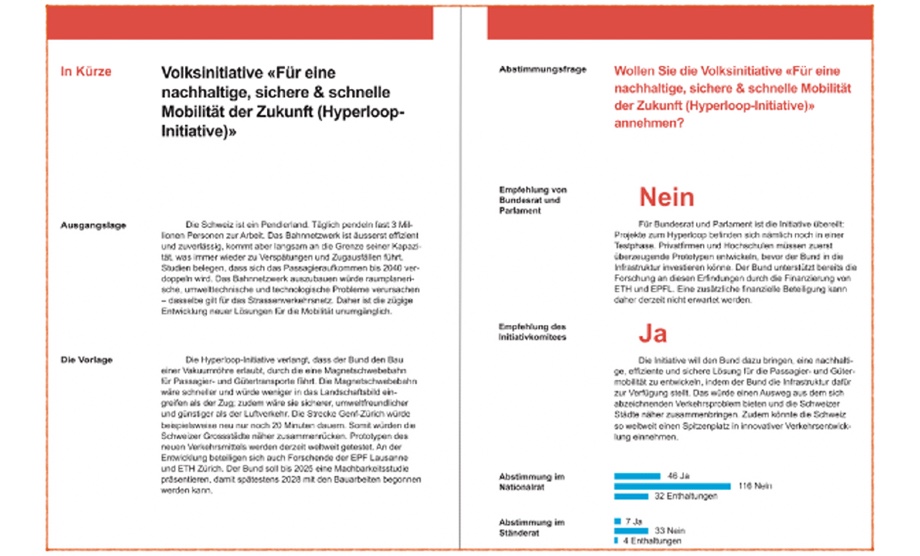New Publication
Virtual Reality as a Tool for Political Decision-Making? An Empirical Study on the Power of Immersive Images on Voting Behavior
Frontiers in Communication

Wibke Weber, Filip Dingerkus, Sara I. Fabrikant, Marta Zampa, Mirjam West and Onur Yildirim
Abstract
One of the strengths of virtual reality (VR) is to provide a highly realistic user experience. How would VR's power of realism affect political decision-making, for example, when experienced by citizens before they cast their vote on an issue? We set out to empirically assess if and how voting information presented in VR would influence people's voting behavior, compared to the traditional text presentation format. In a 2 (format: text vs. VR) × 2 (argumentation: pro vs. con) between-subject factorial experiment, we assessed participants' voting behavior on a fictitious popular initiative. We first asked all participants (N = 179) to cast their vote based on a brief text, inspired by the traditional Swiss voting booklet (baseline). We then randomly assigned participants to one of four experimental conditions containing the same pro or con arguments concerning the voting issue. Participants could then adjust their previously-cast vote. This was followed by retrospective interviews (N = 32) to gain deeper insights into the decision-making process of the participants. Our study shows that the presentation format has a reinforcing effect, that is, leading to more YES votes for the VR group, and fewer YES votes for the text group. Irrespective of the pro or con arguments, participants show an overall increase in YES votes in VR, which is not the case for the text group. We identified six factors that may have led to this positive change with VR: (1) the affirmative power of images, (2) the vividness of immersive images, (3) first-person storytelling and storyliving, (4) the greater affordances of VR for engagement through interaction, (5) the design of the VR environment, and (6) the novelty of the VR technology.